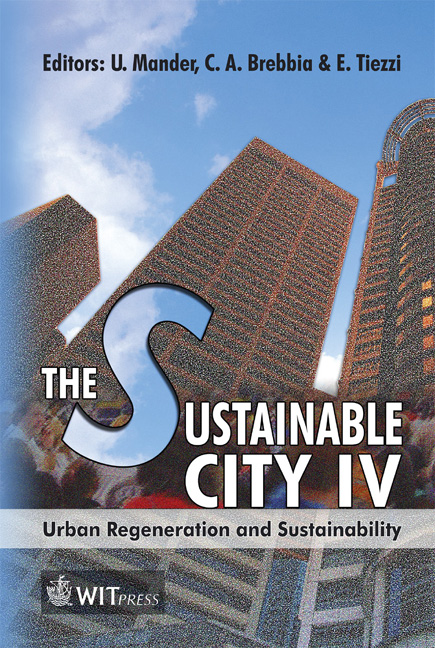KiwiGrowTM: A Community And Environmental Health Framework For Sustainable Development
Price
Free (open access)
Transaction
Volume
93
Pages
13
Published
2006
Size
470 kb
Paper DOI
10.2495/SC060151
Copyright
WIT Press
Author(s)
P. G. Luckman
Abstract
An easily understood community and environmental health framework was devised to provide the basis for a comprehensive assessment of the water and sanitary services for Waitakere City Council, Auckland, New Zealand. The framework, now known as KiwiGrowTM consists of a matrix obtained by considering seven key qualities of healthy ecosystems separately in social, economic, environmental and cultural contexts. A healthy ecosystem is supposed to be nurturing, supportive, stable, contributing, responsive, directed, and adaptive. Each of these terms takes on consistent but slightly different meanings within each of the four major contexts, providing an easily communicated and holistic framework for sustainable development. If adopted as a \“mantra” within the community, it could have far reaching applications to the management of entities ranging from pocket wetlands and neighbourhoods to entire regions. KiwiGrowTM can also underpin a new generation of easily understood, high impact \“quadruple bottom line” sustainability reporting. Keywords: ecosystem health, sustainable development, quadruple bottom line reporting. 1 Introduction In 2002, New Zealand enacted new local government legislation that was based on principles of sustainable development (Local Government Act, 2002). In the Act, the purpose of local government was firstly to enable democratic local decision-making, but was also to promote the social, economic, environmental, and cultural well-being of current and future communities. To underpin the focus on sustainable development, the Act included provisions to improve strategic planning. Local authorities were required to identify and report regularly on the
Keywords
ecosystem health, sustainable development, quadruple bottom line reporting.





